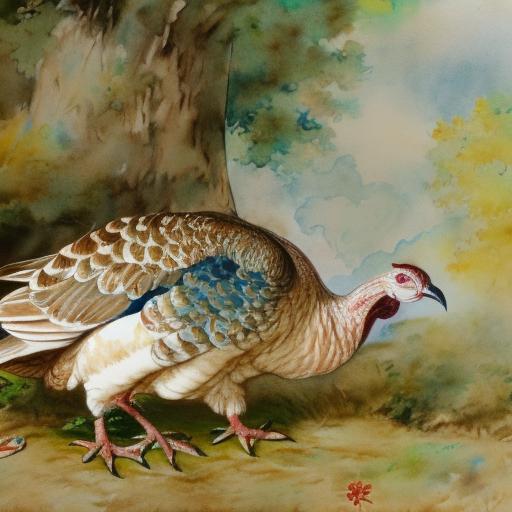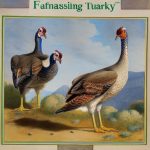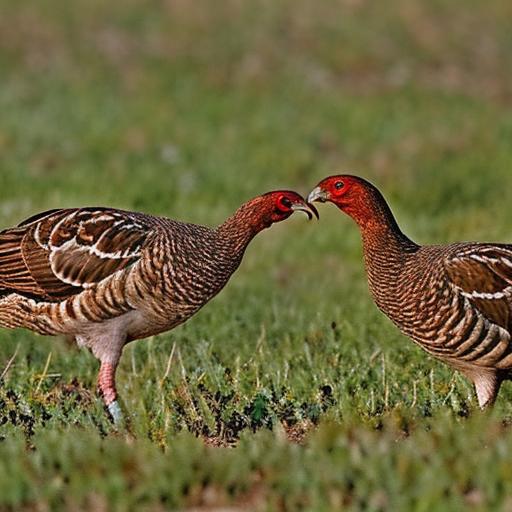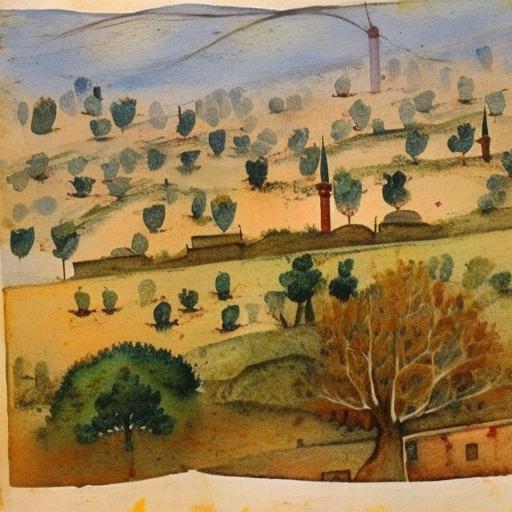Heritage breeds of turkeys are traditional breeds that have been raised for centuries and are known for their unique characteristics, flavor, and ability to thrive in a free-range environment. These breeds are typically raised by small-scale farmers and homesteaders who are passionate about preserving genetic diversity and traditional farming practices. Heritage breeds are often slower-growing than commercial breeds, which results in a more flavorful and succulent meat. They also have a strong natural immunity to common diseases and parasites, making them well-suited for pasture-based systems.
Heritage breeds of turkeys come in a variety of colors and patterns, with some breeds being known for their striking plumage. These turkeys are also known for their ability to forage for food, making them well-suited for free-range and pasture-based systems. In addition to their culinary qualities, heritage breeds of turkeys are valued for their genetic diversity and ability to adapt to different environmental conditions. By raising heritage breeds, farmers and homesteaders play a crucial role in preserving these unique genetic traits for future generations.
Key Takeaways
- Heritage breeds of turkeys are traditional breeds that have been raised for generations and are known for their unique characteristics and flavors.
- BBB turkeys, also known as Bourbon Red, Beltsville Small White, and Standard Bronze, are a popular heritage breed known for their excellent flavor and texture.
- The history of BBB turkeys dates back to the early 1800s, and they were once the most popular breed in the United States before the rise of commercial breeds.
- Preserving heritage breeds is important for maintaining genetic diversity, promoting sustainable agriculture, and preserving cultural heritage.
- Challenges facing heritage breeds include declining populations, competition from commercial breeds, and lack of consumer awareness about the benefits of heritage turkeys.
Characteristics of BBB Turkeys
Broad Breasted Bronze (BBB) turkeys are a specific heritage breed known for their distinctive appearance and excellent meat quality. These turkeys have a broad, muscular breast and a striking bronze plumage, making them a visually stunning addition to any farm or homestead. BBB turkeys are known for their friendly and docile temperament, making them easy to handle and raise. They are also excellent foragers, able to thrive in a pasture-based system where they can graze on grasses, insects, and other natural foods.
In addition to their physical characteristics, BBB turkeys are prized for their flavorful and tender meat. The broad breast of these turkeys yields a high amount of white meat, making them a popular choice for holiday feasts and special occasions. The meat of BBB turkeys is known for its rich flavor and succulent texture, making it a favorite among chefs and home cooks alike. Overall, BBB turkeys are a valuable heritage breed known for their striking appearance, friendly disposition, and exceptional meat quality.
History of BBB Turkeys
The Broad Breasted Bronze (BBB) turkey is a heritage breed with a rich history dating back to the early days of American agriculture. This breed was developed in the late 19th century by crossing European breeds with native North American turkeys, resulting in a bird with excellent meat quality and a striking bronze plumage. BBB turkeys quickly became popular among farmers and homesteaders for their fast growth rate and superior meat production. In the early 20th century, the BBB turkey was one of the most widely raised breeds in the United States, prized for its commercial viability and delicious meat.
However, with the rise of industrial agriculture and the demand for larger, faster-growing turkeys, the BBB breed fell out of favor in the mid-20th century. Commercial breeding programs focused on developing turkeys with rapid growth rates and large breast sizes, leading to the decline of heritage breeds like the BBB turkey. In recent years, there has been a renewed interest in preserving and promoting heritage breeds, including the BBB turkey, as consumers seek out more sustainable and flavorful alternatives to commercial turkey varieties.
Importance of Preserving Heritage Breeds
Preserving heritage breeds of turkeys is crucial for maintaining genetic diversity within the turkey population and ensuring the long-term sustainability of the poultry industry. Heritage breeds possess unique genetic traits that make them well-suited for pasture-based systems, where they can thrive on natural foods and contribute to sustainable farming practices. By preserving these breeds, farmers and homesteaders help to safeguard genetic diversity within the turkey population, which is essential for breeding programs and the development of new varieties with desirable traits.
In addition to their genetic value, heritage breeds of turkeys play an important role in preserving traditional farming practices and cultural heritage. These breeds have been raised for centuries and are deeply rooted in the agricultural history of many regions around the world. By raising heritage breeds, farmers and homesteaders contribute to the preservation of traditional farming methods and help to maintain a connection to the past. Furthermore, heritage breeds are often prized for their superior flavor and meat quality, providing consumers with a more diverse range of options when it comes to choosing poultry products.
Challenges Facing Heritage Breeds
Despite their many valuable qualities, heritage breeds of turkeys face several challenges that threaten their long-term viability. One of the main challenges is competition from commercial turkey varieties that have been selectively bred for rapid growth and large breast sizes. These commercial breeds dominate the market and often outcompete heritage breeds in terms of production efficiency and cost-effectiveness. As a result, many farmers and consumers have shifted towards commercial varieties, leading to a decline in demand for heritage breeds.
Another challenge facing heritage breeds is genetic erosion, which occurs when certain genetic traits become lost or diluted within a population. This can happen when small populations of heritage breeds are not properly managed or when they interbreed with other turkey varieties. Genetic erosion can lead to a loss of valuable traits such as disease resistance, adaptability to different environments, and unique flavor profiles. To address these challenges, efforts must be made to raise awareness about the importance of preserving heritage breeds and to support initiatives that promote their conservation and sustainable use.
Benefits of Raising BBB Turkeys

Raising Broad Breasted Bronze (BBB) turkeys offers numerous benefits for farmers, homesteaders, and consumers alike. These turkeys are known for their excellent meat quality, with a rich flavor and tender texture that sets them apart from commercial varieties. The broad breast of BBB turkeys yields a high amount of white meat, making them a popular choice for holiday feasts and special occasions. Additionally, BBB turkeys are well-suited for pasture-based systems, where they can graze on natural foods and contribute to sustainable farming practices.
From a farming perspective, raising BBB turkeys can be a rewarding experience due to their friendly temperament and striking appearance. These turkeys are known for their docile nature, making them easy to handle and raise on small-scale farms or homesteads. They also have a strong natural immunity to common diseases and parasites, reducing the need for chemical interventions and veterinary treatments. Overall, raising BBB turkeys provides farmers with an opportunity to produce high-quality meat while contributing to the preservation of a valuable heritage breed.
How to Support and Promote Heritage Breeds
There are several ways that individuals can support and promote heritage breeds of turkeys, helping to ensure their continued existence for future generations. One way to support heritage breeds is by purchasing products made from these breeds, such as meat, eggs, or breeding stock. By choosing products from heritage breeds, consumers can help create demand for these unique varieties and support farmers who are dedicated to preserving genetic diversity within the turkey population.
Another way to promote heritage breeds is by raising awareness about their value and importance within the agricultural community. This can be done through educational initiatives, such as workshops, seminars, or farm tours that highlight the benefits of raising heritage breeds and the role they play in preserving genetic diversity. Additionally, supporting organizations that work towards the conservation of heritage breeds can make a significant impact by providing resources and funding for breeding programs, research projects, and outreach efforts.
Furthermore, advocating for policies that prioritize the conservation and sustainable use of heritage breeds can help create a supportive environment for farmers and homesteaders who are dedicated to preserving these unique genetic resources. By working together to raise awareness, create demand, and advocate for supportive policies, individuals can play a crucial role in ensuring the long-term viability of heritage breeds of turkeys.
If you’re interested in learning more about heritage breeds of turkeys, you might also want to check out an article on the mating season for turkeys at PoultryWizard. Understanding the natural behaviors and breeding patterns of turkeys can provide valuable insights into preserving and promoting heritage breeds.
FAQs
What are heritage breeds of turkeys?
Heritage breeds of turkeys are traditional breeds that have been raised by farmers for many generations. They are known for their natural mating, slow growth, and ability to forage for food.
What is the BBB turkey breed?
The BBB turkey, also known as the Broad Breasted Bronze, is a popular commercial breed of turkey that is not considered a heritage breed. It has been selectively bred for fast growth and large breast size, making it a common choice for commercial turkey production.
Are BBB turkeys considered heritage breeds?
No, BBB turkeys are not considered heritage breeds. They have been selectively bred for specific traits that are not characteristic of heritage breeds, such as rapid growth and large breast size.
What are the characteristics of heritage breed turkeys?
Heritage breed turkeys are known for their ability to mate naturally, slow growth rate, and ability to forage for food. They also come in a variety of colors and have unique flavor profiles compared to commercial breeds.
Why are heritage breed turkeys important?
Heritage breed turkeys are important for preserving genetic diversity and traditional farming practices. They also offer a unique flavor and texture compared to commercial breeds, making them a valuable resource for sustainable agriculture.
Meet Walter, the feathered-friend fanatic of Florida! Nestled in the sunshine state, Walter struts through life with his feathered companions, clucking his way to happiness. With a coop that’s fancier than a five-star hotel, he’s the Don Juan of the chicken world. When he’s not teaching his hens to do the cha-cha, you’ll find him in a heated debate with his prized rooster, Sir Clucks-a-Lot. Walter’s poultry passion is no yolk; he’s the sunny-side-up guy you never knew you needed in your flock of friends!







